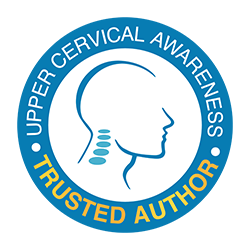Natural At Home Migraine Prevention | Upper Cervical Chiropractor in Mount Dora, FL
Hello, Dr. Todd here from Mountain Dora Family Chiropractic, and today I wanted to focus on migraines. Specifically, we want to talk about what natural things you can be doing at home to help relieve or prevent migraines onset. So again, we just have a big heart for folks suffering with migraines, it is very debilitating, and a severe disruption to your life and lifestyle. So what are some things you can do?
Different Relaxation Techniques
Number one, relaxation techniques such as box breathing, yoga, going for a nice long walk at the end of the day, really anything that’s going to increase or improve your overall well being. So some common sense applies there, but I really liked the like the box breathing. So there’s different variations of it, but the one I like that everyone can do is 4-4-4. So you’re gonna breathe in for four seconds, hold for four seconds, and exhale for four seconds. You can do as many reps of that as you want as long as you don’t feel lightheaded. I recommend doing five or six rounds of that technique. You can do it in the morning, noon and night just to help calm your system, that box breathing actually helps to activate what’s called your Vagus Nerve. That nerve is part of your parasympathetic nervous system, which helps you calm down and rest. Obviously Yoga is a great source exercise and relaxation. It’s also really complimentary to chiropractic care because it’s great for your spine, if done properly. You’ll also get some wonderful breathing and circulation with that exercise as well. Going on a walk kind of speaks for itself, so incorporate that or anything that’s going to increase your overall well being.
Hot & Cold Compresses
Alright, number two here is hot and cold compresses. So you may have to experiment a little bit with this one. Some people say the cold pack does great, some people the cold pack is provocative, or they don’t like it over the heat. You can also do both, sometimes just alternating between the two. When people have an acute injury or a flare up in their spine I’ll often advocate that they start with heat and then end with cold. You might have to find out what works for you. Sometimes even just a hot soak or Epsom salt bath, anything to help get you relaxed and increase overall well being.
The Importance of Sleep
This is a big one, adequate rest and sleep! Today we live in a Go-Go-Go society, so people are often sleep deprived. Even if they’re sleeping long enough, they’re not getting quality sleep, it’s usually broken and disrupted sleep. So there that’s a whole conversation in itself, making sure you get quality sleep. Some simple ones are you need to have a routine where you try to go to bed at the same. So if your bed times 10, you want to go to bed between nine and eleven on either side every night. With your wake up, you want to do the same thing. So if you normally wake up at six, you want to get up between five and seven. This way your body gets into that sleep rhythm which affects your circadian rhythm, hormone production, etc. Also, you want to have a very quiet and dark room. You don’t want to have lights on and things like that. What could be most important factor is an electronic detox 30 minutes before you go to bed. No TV, no iPad or phones in bed because they emit blue light. That actually signals your pituitary gland to stop producing melatonin, which is your sleep hormone. So get off of all electronics and technology, I recommend maybe just a little light reading before you go to bed or something that calms and inspires you. Things like prayer, meditation, reading the Bible, whatever it is for you that helps you get in that really good state to go to sleep.
Staying Hydrated
Okay, next one here is water intake and making sure you’re staying well hydrated. Somewhere around 60-70% of Americans are dehydrated, meaning they don’t drink enough water. So that’s an easy solution. A good rule is half your body weight in ounces. If you’re not sure how to calculate that or don’t want to keep track of it, eight to twelve glasses of water a day is where you should be. Alright, obviously if you’re outside sweating and working out and things like that, you’re going to need more magnesium supplements. Just make sure with your doctor that there’s no issue there, but generally magnesium is very a very benign supplement. It’s inexpensive, you can pick it up at your local health food or Vitamin Shop. I recommend magnesium glycinate. That can also help calm your nerves down, relax your muscles and so on.
Essential Oils
Then there’s essential oils that you can use. The most popular for headaches and migraines would be your lavender, peppermint or eucalyptus oils. So with those, again, you want to use trial and error and see which ones you like. You probably know yourself pretty well so just use your best judgement. Like you might say, “Well, I hate Eucalyptus”. Well don’t get that one, go try a lavender or peppermint. Okay, and you want to dilute it and just use a little bit and just on the sides of your temple. Start light with these, but obviously you can do any of these or all of them. If you’ve been doing these things and you’ve been to other resources, but you’re still suffering with migraines we might need to have a look. You might have a bio-structural issue causing your discomfort, and these things aren’t going to get to the root cause of it if that’s the case.
If you’re curious as to how we may be able to help watch some more of our videos, explore our website, but we also offer complimentary consoles and preliminary exams. Thanks for tuning in and have a blessed day!



